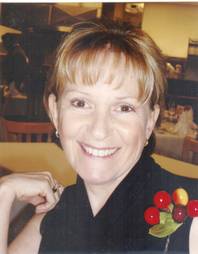
Stefani Evans
I explored a few virtual study groups in my column, "Online groups help genealogists study." This column focuses on a face-to-face group approach developed in Regina, Canada, by the late Kenneth G. Aitken and in Northeast Ohio in 2003 by Donna Redhead Gruber, CG, and Robert Keener.
Aitken, Gruber and Keener based their study groups on the model originated by William M. Litchman in his article, "Teaching Analysis, Logic, and the Research Process: A Seminar Approach," National Genealogical Society (NGS) Newsmagazine (Nov/Dec 2000, 340-343). Litchman's article outlines his approach: participants together select an article for study for each monthly meeting; participants read the assigned article at least three times, make notes, and prepare discussion questions regarding the author's claims, sources, and methodology and the relative strengths and weakness in the author's approach, research, or analysis. Gruber usually focuses her questions on the author's use of the Genealogical Proof Standard and on the author's analysis of sources, evidence, and information.
Gruber and Keener use a graduate-school format in which they expect all members to participate. Members find that the more they prepare beforehand the more they benefit from the discussion. As far as possible, participants fact-check the author's sources and consult outside sources to further the discussion. They do not "build" one article upon a previous discussion; rather, each session stands alone. Thus, members who must miss a discussion may pick up the following month.
In the beginning Gruber and Keener selected articles for study, usually from the National Genealogical Society Quarterly (NGSQ); however, the group now selects the monthly reading together, and has, on occasion, read unpublished articles submitted by a group member for peer review and suggestions for further research.
The local Ohio group meets monthly at the Akron Public Library, which maintains a good genealogy collection that members can utilize before or after their meeting. The study group tries to piggy-back its monthly meeting with meetings of the Summit County Chapter of the Ohio Genealogical Society (OGS), so participants may attend both meetings in one trip. Gruber and Keener have had as many as 22 participants and as few as two attend a monthly discussion; generally eight members participate. They try to limit their local groups to 12, including Gruber and Keener, and they welcome all intermediate, advanced, or professional researchers. Gruber traces the group's success and longevity to having two co-leaders who work cooperatively and have seldom had to miss the same meeting.
Besides heading their local group, Gruber and Keener also conduct the Litchman-model study group as a for-fee workshop at the Annual Conference of the OGS; they have missed only one year since 2004 and have had to limit the conference groups to 20 participants. For the OGS workshops, Gruber and Keener request permission from the authors to use their articles for study. The authors have consistently granted permission; in one case the author requested feedback from the discussion, and another author provided the original (unedited, prepublication) manuscript for discussion.
I thank Donna Redhead Gruber for providing information for this column and for granting permission to use it. Angela McGhie has submitted an article for publication in the Association of Professional Genealogists Quarterly (APGQ) in which she discusses using the Litchman model for a virtual study group. Perhaps the efforts of Aitken, Gruber and Keener, and McGhie will encourage others to develop similar study groups.
Stefani Evans is a board-certified genealogist and a volunteer at the Regional Family History Center. She can be reached c/o the Home News, 2360 Corporate Circle, Third Floor, Henderson, NV 89074, or [email protected].

Join the Discussion:
Check this out for a full explanation of our conversion to the LiveFyre commenting system and instructions on how to sign up for an account.
Full comments policy